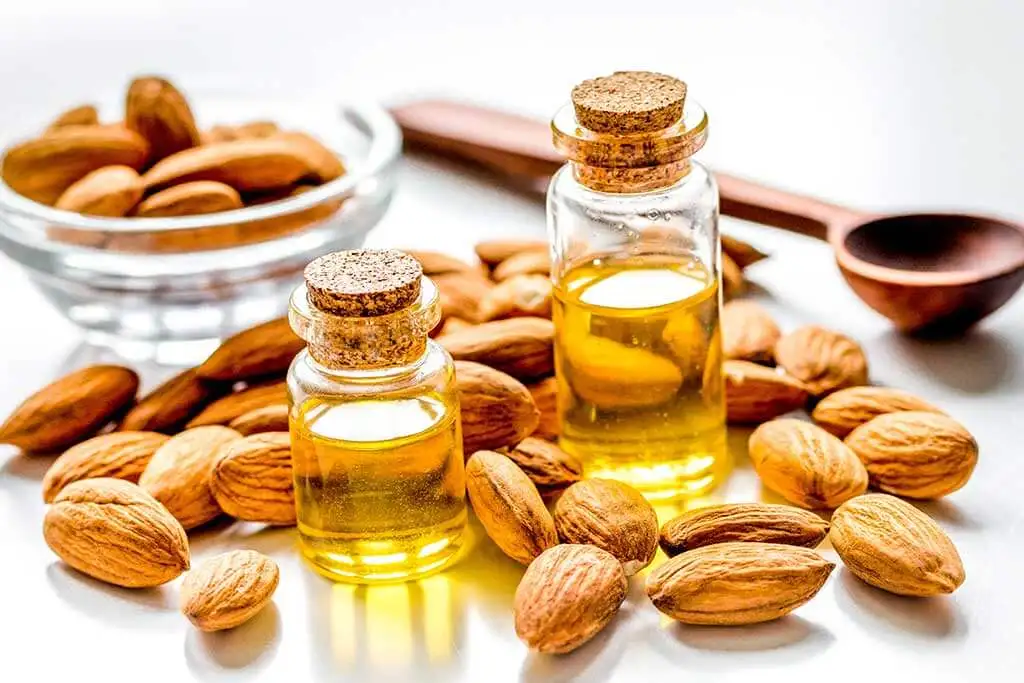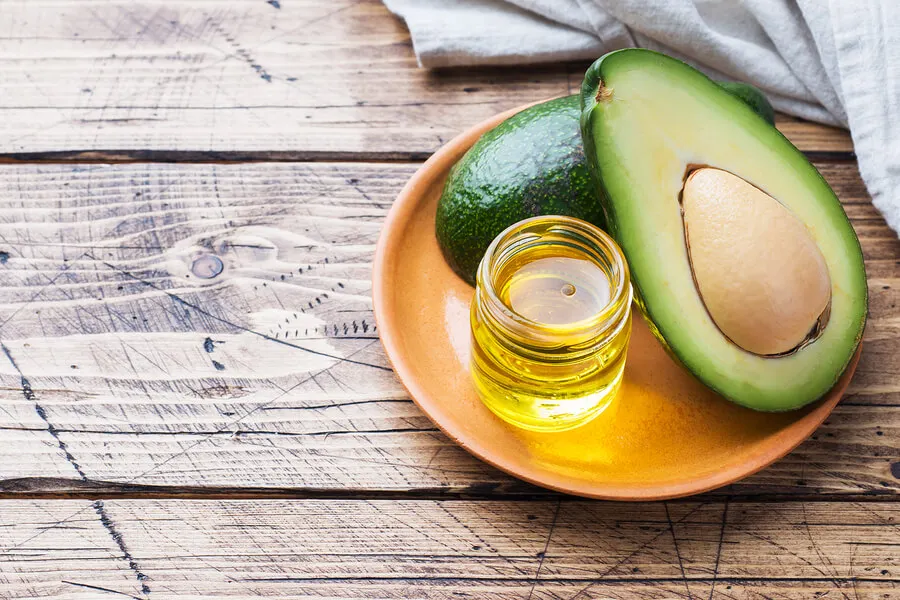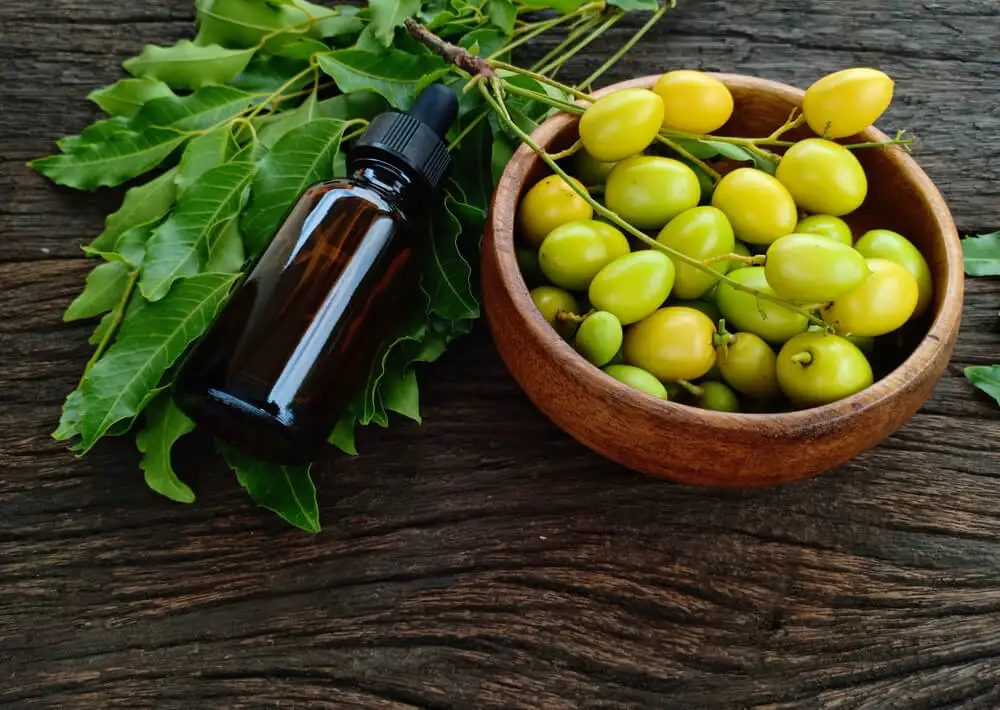The 10 Best Carrier Oils for Your Essential Oils


Reviewed and approved by the pharmacist Franciele Rohor de Souza
When it comes to taking advantage of the properties of essential oils, one of the indications is to dilute them in carrier oils. These are oily products of vegetable origin, whose composition moisturizes the skin and prevents the appearance of unwanted reactions, such as irritation, itching or dryness.
As a publication in the International Journal of Women’s Dermatology explains, the chemicals and vegetable products in essential oils tend to generate irritant contact dermatitis reactions, which manifest themselves through skin lesions or burns.
Hence the importance of combining them with other varieties of oils compatible with the skin, which, by the way, facilitate their absorption and allow extra benefits when using them. What are the best options? Here are all the details.
What are carrier oils?
Carrier oils are also known as “base oils” or “carrier oils”. They’re extracted from seeds, plants or fruits that are usually abundant in fatty acids, antioxidants, vitamins, and minerals. They’re called “carrier oils” because they’re often used simultaneously with essential oils to enable their topical application.
Their composition protects the skin barrier and neutralizes the adverse effects that essential oils can cause when used alone. The formula of the latter is quite potent and tends to generate irritation or chemical burns when in direct contact with the skin.
There’s a wide variety of options that can be chosen according to the needs and characteristics of each individual’s skin. They don’t usually have strong fragrances, but respect the therapeutic properties of essential oils and provide extra nourishment.
Read more: Neroli Essential Oil: Uses, Benefits, and Contraindications
The top 10 carrier oils to blend your essential oils
The purpose of carrier oils goes beyond diminishing the irritating nature of essential oils. Coinciding with research in International Journal of Molecular Sciences, they’re increasingly recognized for their effects in restoring skin homeostasis and preventing disease.
In particular, they exert anti-inflammatory, wound-healing, antimicrobial, moisturizing, and protective properties. This is largely attributed to their composition, which includes triglycerides, tocopherols, sterols, stanols, phospholipids, waxes, and phenolic compounds, among others. So, which are the most recommended?
1. Coconut oil
One of the most popular carrier oils is coconut oil. It’s characterized by its low molecular weight, which allows easy penetration into the skin. Its abundant content of saturated fats and antioxidants make it a product with multiple benefits for skin health.
According to a report shared in the Journal of Traditional and Complementary Medicine, this oil improves skin barrier function, in addition to acting as a moisturizer and anti-inflammatory. In itself, its application is linked to the following effects:
- The prevention of scarring
- Relief of dryness and irritation
- Prevention of fungal and bacterial infections
- Relief of eczema and cold sores symptoms
It’s important to clarify that this oil is considered comedogenic. Therefore, it’s not recommended for oily skin and skin with enlarged pores.
2. Almond oil
With a mild formula for the skin and a pleasant aroma, almond oil is positioned as one of the most used carrier oils. It stands out for its significant contribution of polyunsaturated and monounsaturated fatty acids, with oleic acid as the main compound. In addition, it contains tocopherols and phytosterols.
Due to its moisturizing, anti-inflammatory, and healing properties, it has a long therapeutic and cosmetic history. A publication in Complementary Therapies in Clinical Practice notes that it has emollient and sclerosing properties that are used to improve complexion and skin tone.
It is ideal for blending essential oils such as tea tree, lavender, lemon, or rosemary. Its application helps to reduce the symptoms of psoriasis, burns, eczema, and acne.

3. Jojoba oil
Rich in fatty acids, vitamin E, and vitamin B, jojoba oil is noted for its emollient and antioxidant qualities, which are ideal for soothing the skin and protecting it against various external factors that deteriorate it.
It is an important source of wax esters and long-chain alcohols that have positive effects on skin health. A review of studies shows that it is anti-inflammatory, antioxidant, and healing. It can prevent skin infections and premature aging.
It’s also used to moisturize the dermis, promote pore cleansing, prevent burns, and strengthen hair. It can be used in combination with essential oils of rosemary, lavender, ginger, mint, oregano, and cinnamon, among others.
4. Olive oil
In natural cosmetics, olive oil is valued for its moisturizing, restorative, and anti-inflammatory properties. Both its consumption and topical application are linked to skin health benefits, such as the relief of dryness, the healing process, and the prevention of aging.
Meanwhile, the evidence regarding its effects on the skin is controversial. While some studies suggest that it may affect the skin barrier, others highlight its benefits and point out that it does not cause side effects.
In general, it’s recommended to avoid it on sensitive skin, with enlarged pores or acne-prone skin. It should also not be applied to babies’ skin.
5. Rosehip oil
Like other carrier oils, rosehip oil is characterized by an abundant content of fatty acids, vitamin E, and vitamin C. A study reported in the International Journal of Molecular Sciences highlights its potential as an adjuvant against skin disorders.
To be more precise, it is used to reduce the presence of skin blemishes, dryness, and symptoms of eczema. In addition, combined with essential oils such as tea tree, eucalyptus, or peppermint, it can help in the prevention and treatment of skin infections.
6. Avocado oil
A review in the journal Molecules states that avocado oil is a significant source of monounsaturated fatty acids, vitamin E, phytosterols, alkanes, and polyphenols. Because of this, it’s attributed with anti-inflammatory and antioxidant properties that benefit skin health.
In cosmetics, it is used alone or combined with essential oils to reduce dryness, irritation, and inflammation. In fact, it’s associated with stimulating collagen production, which contributes to skin wound repair.

7. Flaxseed oil
Although not the most popular, flaxseed oil is a good choice for blending essential oils. It’s noted for its abundant content of omega-3 and alpha-linoleic acids (ALA) that confer anti-inflammatory, antioxidant, and regenerative effects.
Its main benefits for skin health are obtained through its inclusion in the diet. Evidence suggests that it decreases sensitivity and improves skin barrier function. In addition, applied topically, it’s associated with skin pH balance, healing, and diminishing blemishes.
8. Argan oil
The interesting chemical composition of argan oil makes it one of the best carrier oils. It has significant amounts of linoleic acid, omega-6, and vitamins A and E, among other antioxidants that protect skin and hair health.
Through a randomized controlled trial – reported in Clinical Interventions in Aging –researchers determined that daily consumption and topical application of argan oil improves skin elasticity and has an anti-aging effect.
You may also like to read this article: 6 Ways Argan Oil Benefits Your Skin
9. Grape seed oil
Abundant in compounds such as tocopherol, linolenic acid, resveratrol, quercetin, carotenoids, and phytosterols, grape seed oil is a favorite for skin care. Its application is related to the prevention of premature aging, cell regeneration, and collagen production.
Its combination with ylang-ylang, sandalwood or pomegranate essential oil is recommended, since these enhance its anti-aging effect.
10. Neem oil
A review shared through Recent Advances in Anti-Infective Drug Discovery found that neem has antimicrobial, anti-inflammatory, antioxidant, and antiseptic properties.
Thus, it is attributed with potential against several skin problems, such as dryness, dermatitis, infections, and premature aging. In fact, it acts as a natural insecticide, which prevents mosquito bites.
It serves as a carrier oil for any essential oil. However, its combination with eucalyptus or peppermint oil is recommended to enhance its repellent effect.

How to use carrier oils
To use these oils as carriers, simply combine 3 to 5 drops of the essential oil (preferred choice) for every 15 milliliters of the selected one (coconut, olive, almond, etc.). Once mixed, it can be massaged in.
In any case, it should be noted that all skins react differently to the application of these products. Therefore, before using them in their entirety, it’s advisable to do a patch test.
It’s enough to rub a small amount on an area of the skin. If no adverse reaction occurs after a few hours, it can be applied without any problem. In case of oily or sensitive skin, it’s advisable to consult a dermatologist for the most suitable option.
Finally, it’s important to remember the importance of choosing quality products. Make sure to choose the pure or extra virgin version of these oils. There are mixtures of vegetable oils on the market that don’t have the same properties and can be harmful. Always check the labels!
All cited sources were thoroughly reviewed by our team to ensure their quality, reliability, currency, and validity. The bibliography of this article was considered reliable and of academic or scientific accuracy.
- Ahmad Z. The uses and properties of almond oil. Complement Ther Clin Pract. 2010 Feb;16(1):10-2. doi: 10.1016/j.ctcp.2009.06.015. Epub 2009 Jul 15. PMID: 20129403.
- Alnemer F, Aljohani R, Alajlan A, Aljohani M, Alozaib I, Masuadi E, Omair A, Al Jasser MI. The use of olive oil for skin health in a Saudi population: A cross-sectional study. Dermatol Reports. 2021 Dec 17;14(1):9364. doi: 10.4081/dr.2022.9364. PMID: 35399371; PMCID: PMC8991441.
- Badiu, D., Luque, R., & Rajendram, R. (2010). Effect of Olive Oil on the Skin. In Olives and Olive Oil in Health and Disease Prevention (pp. 1125–1132). Elsevier. https://doi.org/10.1016/b978-0-12-374420-3.00123-6
- Danby, S. G., AlEnezi, T., Sultan, A., Lavender, T., Chittock, J., Brown, K., & Cork, M. J. (2012). Effect of Olive and Sunflower Seed Oil on the Adult Skin Barrier: Implications for Neonatal Skin Care. In Pediatric Dermatology (Vol. 30, Issue 1, pp. 42–50). Wiley. https://doi.org/10.1111/j.1525-1470.2012.01865.x
- Flores M, Saravia C, Vergara CE, Avila F, Valdés H, Ortiz-Viedma J. Avocado Oil: Characteristics, Properties, and Applications. Molecules. 2019 Jun 10;24(11):2172. doi: 10.3390/molecules24112172. PMID: 31185591; PMCID: PMC6600360.
- Garavaglia J, Markoski MM, Oliveira A, Marcadenti A. Grape Seed Oil Compounds: Biological and Chemical Actions for Health. Nutr Metab Insights. 2016 Aug 16;9:59-64. doi: 10.4137/NMI.S32910. PMID: 27559299; PMCID: PMC4988453.
- Lin TK, Zhong L, Santiago JL. Anti-Inflammatory and Skin Barrier Repair Effects of Topical Application of Some Plant Oils. Int J Mol Sci. 2017 Dec 27;19(1):70. doi: 10.3390/ijms19010070. PMID: 29280987; PMCID: PMC5796020.
- Neukam K, De Spirt S, Stahl W, Bejot M, Maurette JM, Tronnier H, Heinrich U. Supplementation of flaxseed oil diminishes skin sensitivity and improves skin barrier function and condition. Skin Pharmacol Physiol. 2011;24(2):67-74. doi: 10.1159/000321442. Epub 2010 Nov 18. PMID: 21088453.
- Orchard A, van Vuuren SF. Carrier oils in dermatology. Arch Dermatol Res. 2019 Nov;311(9):653-672. doi: 10.1007/s00403-019-01951-8. Epub 2019 Jul 18. PMID: 31321504.
- Ouzir M, Bernoussi SE, Tabyaoui M, Taghzouti K. Almond oil: A comprehensive review of chemical composition, extraction methods, preservation conditions, potential health benefits, and safety. Compr Rev Food Sci Food Saf. 2021 Jul;20(4):3344-3387. doi: 10.1111/1541-4337.12752. Epub 2021 May 30. PMID: 34056853.
- Pazyar N, Yaghoobi R, Ghassemi MR, Kazerouni A, Rafeie E, Jamshydian N. Jojoba in dermatology: a succinct review. G Ital Dermatol Venereol. 2013 Dec;148(6):687-91. PMID: 24442052.
- Singh V, Roy M, Garg N, Kumar A, Arora S, Malik DS. An Insight into the Dermatological Applications of Neem: A Review on Traditional and Modern Aspect. Recent Adv Antiinfect Drug Discov. 2021;16(2):94-121. doi: 10.2174/2772434416666210604105251. PMID: 34961431.
- Sindle A, Martin K. Art of Prevention: Essential Oils – Natural Products Not Necessarily Safe. Int J Womens Dermatol. 2020 Nov 12;7(3):304-308. doi: 10.1016/j.ijwd.2020.10.013. PMID: 34222588; PMCID: PMC8243157.
- Varma SR, Sivaprakasam TO, Arumugam I, Dilip N, Raghuraman M, Pavan KB, Rafiq M, Paramesh R. In vitro anti-inflammatory and skin protective properties of Virgin coconut oil. J Tradit Complement Med. 2018 Jan 17;9(1):5-14. doi: 10.1016/j.jtcme.2017.06.012. PMID: 30671361; PMCID: PMC6335493.
This text is provided for informational purposes only and does not replace consultation with a professional. If in doubt, consult your specialist.








